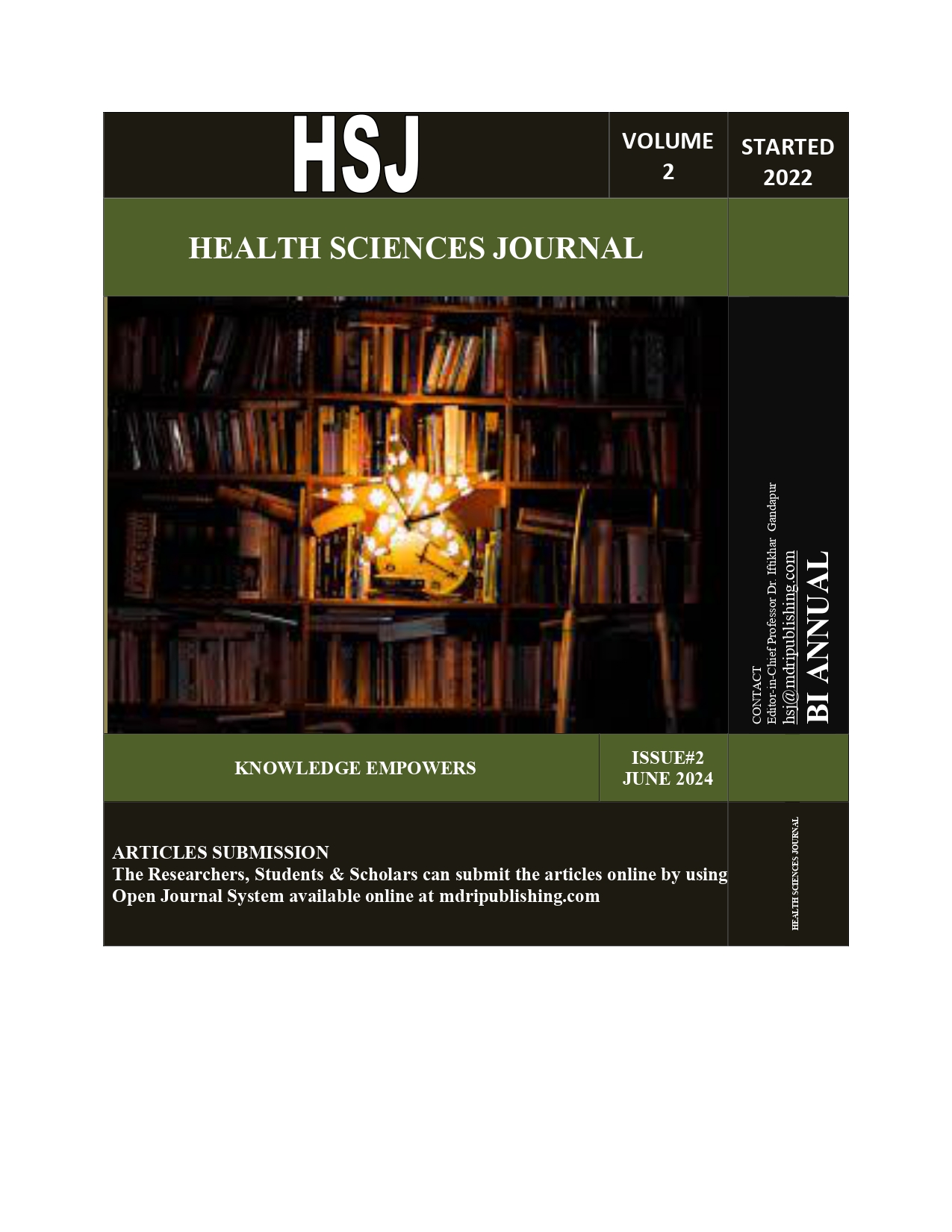KNOWLEDGE, ATTITUDE AND PRACTICES ON ORAL HEALTH AMONG THE PATIENTS ATTENDING THE DENTAL OPD AT UPHC IN THE SOUTH-WEST DISTRICT, DELHI
DOI:
https://doi.org/10.59365/hsj.2(2).2024.96Keywords:
Oral Health, KAP, Oral Hygiene, Dental Patients, DelhiAbstract
Background: Oral health is critical for a person's overall health. Dental caries and periodontists are frequently linked to a variety ofsystemic disorders. Good oral health practices are the key to preventing oral cavity diseases. Oral health is still a burden in developing nations such as India, and its prevalence is affected by a variety of factors such as geographical region, availability, and
accessibility of oral health treatments. The primary etiological risk factors for oral health include genetic predisposition, developmental issues, inadequate oral hygiene, and traumatic incidents. Poor living conditions, limited education, traditions, beliefs, and practices in helping to maintain oral health include all sociocultural determinants. Lack of knowledge and following incorrect practices related to oral health are very important factors resulting in poor oral hygiene. Objective: The objective of the study is to assess the oral health KAPs related to Dental caries of patient attending the Dental OPD at UPHC Munirka. Material and Method: A descriptive cross-sectional study was conducted using a questionnaire that assessed KAPs of patient attending dental OPD, aged 18-60 years’ during 2023 among 140 patients visiting the outpatient department of dentistry. Results: The overall knowledge attitude and practices are good and 9.3% of participants having poor practices. Out of 140 patients, 85.0% were visited the dentist when they have dental pain. Around 69.3% participants were reported practice of brushing their teeth twice in a day and about 46.4% of participants know the exact purpose of brushing. The study also found a correlation between educational status and oro dental hygiene practices. Conclusions: Among the participants 83.6% were aware of the adverse outcomes of fizzy soft drinks and 97 percent had the knowledge on the causes of oral cancer. Those who have good knowledge on oral health were doing good practices for oral hygiene. Therefore, promoting community-based programs at periodic intervals for better oral health and hygiene should be conducted.





